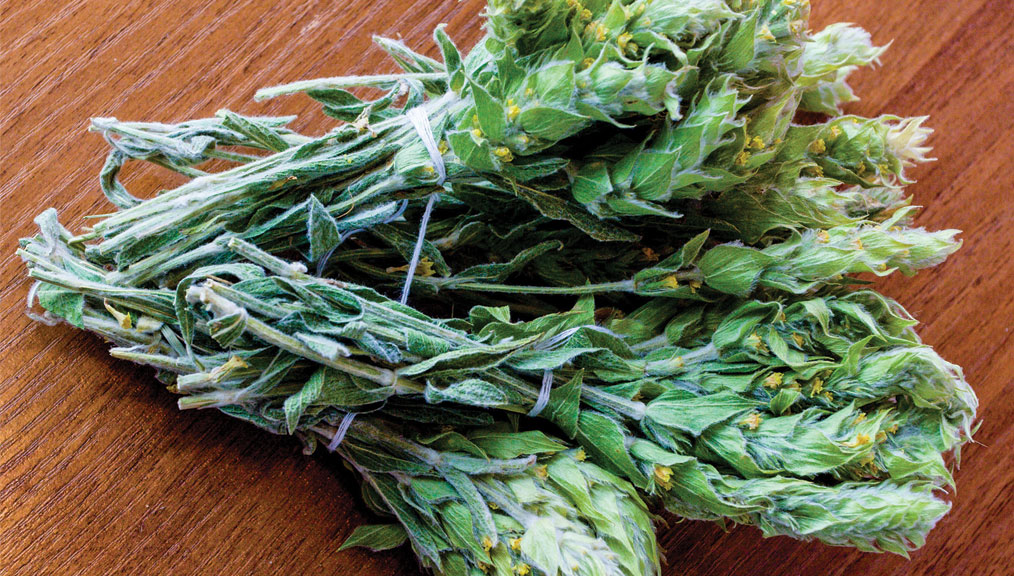What is Greek Mountain Tea?
[G]reek mountain tea is an herbal tea native to Greece, grown at over 3,000 feet in elevation. The plant comes from the Sideritis family, and in Greece is called tsai tou vou nou. Stems of this mountain tea are identifiable by their pale green leaves and yellow budding flowers. The leaves of the plant resemble sage—and smell like it as well.
Before preparing yourself a cup of this tea, I suggest taking in the aromas of the dried plant. One sniff will fill your senses with a sugary and soft sage, tricking your taste buds into believing that you’re in an Italian restaurant.
One sniff will fill your senses with a sugary and soft sage.
How to Make Mountain Tea
For a hot preparation of Greek mountain tea, I recommend using a tea strainer. Break apart a few stems of the tea—including the leaves, stem, and flowers. Then, place the strainer in a cup and pour boiling water over it. After steeping for about five minutes, your hot cup of Greek mountain tea should be ready!
When drinking this tea by itself (without any sugar or added flavors), you’ll get a mouthful of oily and creamy sage that leaves behind a velvety sweetness in the back of your throat. The flavor profile of this tea may sound odd, and it’s hard to believe that something so medicinal-looking would have a flavor as full as this, but it works.
Greek mountain tea also lends itself to a delightful iced beverage. A large tea pitcher works best for the iced preparation. I use a large handful of tea leaves for every liter of water, as this is my personal preference. The combinations are practically endless because the sage-like tea is an excellent pairing with milk, sugar, and even slices of watermelon and lemon.
Adding Mountain Tea to Your Cafe Menu

Because the flavors of this tea complement a wide variety of other ingredients, mountain tea is a great opportunity for cafés to introduce new and exciting flavors to their menu. To showcase the depth of flavor in this tea, consider pairing it with finger foods for a classic high-tea session, or using it as an ingredient in one of your lunch dishes. How cool would it be to tell your customers that their meal is made with tea? A delicious favorite of mine is to mix up a chicken marinade with olive oil, Greek mountain tea, rosemary, oregano, salt, and pepper. This combination of flavors highlights various herbal notes as you sip down your mountain tea.
In addition to its uniquely sweet sage flavor and diverse options for pairing, Greek mountain tea boasts a high level of antioxidants. One of those antioxidants is a group of compounds called bioflavonoids, and are found in Greek mountain tea at twice the level compared to chamomile tea. Bioflavonoids are a group of compounds that enhance vitamin C, help blood circulation, and are known to improve inflammatory conditions. Greek mountain tea is so high in antioxidant compounds, it was praised by the father of modern medicine: Hippocrates.
Greek mountain tea is an excellent drink that can be made in many different variations. It’s loaded with health benefits, and has a delicious taste that will keep you coming back for cup after cup. Along with providing a boost for your health, mountain tea is just as delightful on your taste buds. If you are drinking this tea cold or hot, sweet or unsweetened, you can be certain that it won’t leave you disappointed. It’s easy to see why Hippocrates was an advocate for this delicious treat.
—Cody Wade is manager at Tin Tulip Tearoom.
















